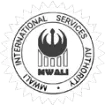1. Educate Yourself - Gaining Forex Knowledge
Before venturing into any financial market, building a strong knowledge base is crucial. Here's how to get started:
- Forex Fundamentals: Understand the core concepts of forex trading, including currency pairs, bid/ask spreads, leverage, and margin requirements.
- Market Analysis: Explore technical and fundamental analysis techniques to interpret market trends, identify trading opportunities, and make informed decisions.
- Economic Indicators: Familiarize yourself with key economic indicators like interest rates, inflation data, and Gross Domestic Product (GDP) that influence currency valuations.
Before venturing into any financial market, building a strong knowledge base is crucial. Here's how to get started:
2. Choose a Regulated Forex Broker
Selecting a reliable and regulated forex broker is paramount. Consider the following factors:
- Regulation: Ensure the broker is licensed by a reputable financial authority to safeguard your funds and trading activities.
- Trading Platform: Evaluate the user-friendliness, features, and research tools offered by the broker's trading platform.
- Account Types: Choose an account type that aligns with your experience level and risk tolerance. Many brokers offer demo accounts to practice trading before committing real capital.
- Spreads and Commissions: Compare the spreads and commission fees charged by different brokers to optimize your trading costs.
- Customer Support: Opt for a broker with responsive and reliable customer support to address any inquiries or troubleshooting needs.
3. Develop a Trading Strategy
A well-defined trading strategy acts as your roadmap in the forex market. Here are some key aspects to consider:
- Trading Style: Identify your preferred trading style. Do you favor short-term scalping or longer-term position trading?
- Risk Management: Establish clear risk management parameters, including stop-loss and take-profit orders to mitigate potential losses.
- Money Management: Allocate a specific portion of your capital dedicated to forex trading and adhere to strict position sizing guidelines to avoid overexposure.
- Technical Analysis: Integrate technical analysis tools like charts, indicators, and trend lines to identify entry and exit points for your trades.
- Fundamental Analysis: Consider fundamental factors like economic data, central bank policies, and geopolitical events that can impact currency valuations.
Remember, backtest your trading strategy on historical data and refine it as you gain experience.
4. Open a Trading Account and Fund It
Once you've chosen a broker, the next step is to open a trading account. The process typically involves completing an online application and verifying your identity. After account approval, fund your account using your preferred method, as specified by the broker.
5. Start with a Demo Account (Optional)
Many brokers offer demo accounts with virtual funds, allowing you to practice trading in a simulated environment. Utilize this valuable tool to gain experience with the broker's platform, test your trading strategy, and build confidence before risking real capital.
6. Execute Your First Trade
Once you're comfortable with the platform and your strategy is in place, you can execute your first live trade. Start with smaller positions to manage risk and gradually increase your trade size as you gain experience and confidence.
7. Monitor Your Trades and Manage Risk
Forex trading is a dynamic process. Continuously monitor your open positions, adjust them as needed based on market movements, and adhere to your pre-defined stop-loss and take-profit orders.
8. Continuously Learn and Adapt
The forex market is constantly evolving. Stay informed about economic developments, refine your trading strategy through ongoing learning, and adapt to changing market conditions.
9. Develop Patience and Discipline
Successful forex trading requires patience and discipline. Don't chase losses or succumb to emotional impulses. Stick to your strategy, manage risk effectively, and be prepared to accept occasional losses as part of the learning process.
10. Build Your Trading Experience
Forex trading is a journey, not a destination. As you gain experience, you'll refine your skills, develop a more intuitive understanding of the market, and potentially achieve your trading goals.
Conclusion
Forex trading presents a challenging yet rewarding opportunity for those seeking to participate in the world's largest financial market. By equipping yourself with the necessary knowledge, choosing a reliable broker, developing a sound trading strategy, and practicing disciplined risk management, you can embark on your forex trading journey with a solid foundation. Remember, success in forex trading requires continuous learning, adaptation, and a commitment to self-improvement.
- Community and Support: Joining online forex communities or forums can connect you with experienced traders who can offer valuable insights and support.
- Realistic Expectations: Approach forex trading with realistic expectations. While high profits are possible, the market carries inherent risks. Focus on consistent, measured growth and prioritize risk management over chasing quick gains.
- Psychology of Trading: Mastering your emotions is crucial in forex trading. Develop emotional discipline to avoid impulsive decisions and trade rationally based on your strategy.
- Long-Term Commitment: Consider forex trading as a long-term endeavor. Consistent learning, experience, and adaptation are key to navigating the ever-changing market landscape.
By following these steps and remaining committed to your trading education, you can increase your chances of success in the exciting world of forex trading.







